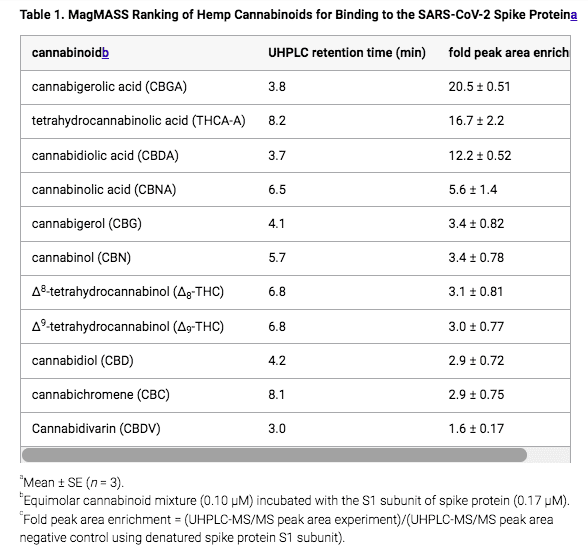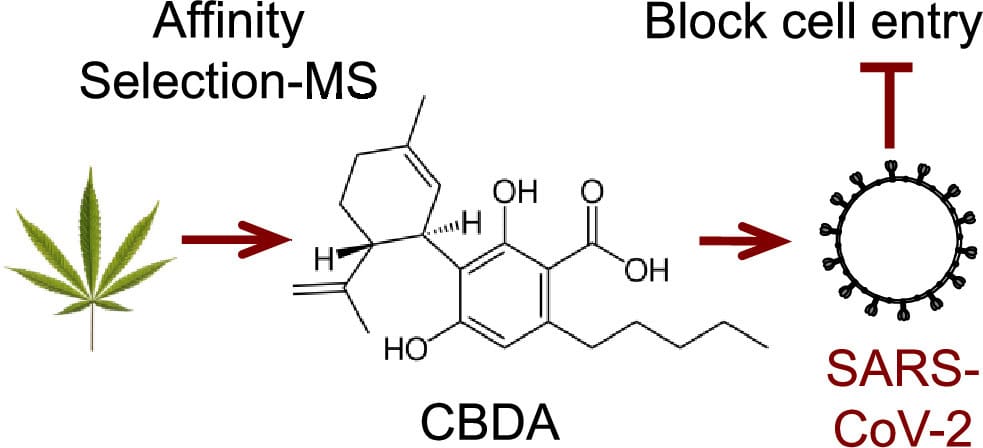In news that was widely reported and joked about by Stephen Colbert and Jimmy Kimmel, a preliminary study from Oregon State University found that cannabinoids in raw cannabis (CBGA, THCA, and CBDA) have strong affinities for binding to the SARS-CoV-2 spike protein. Researchers used affinity selection–mass spectrometry (AS-MS), which “involves incubating a therapeutically important receptor like the SARS-CoV-2 spike protein with a mixture of possible ligands such as a botanical extract,” then separating the possible active compounds using magnetic microbead affinity selection screening (MagMASS).
Upon further study, CBDA and CBGA “were confirmed to block infection of human epithelial cells by a pseudovirus expressing the spike protein,” researchers wrote. “More importantly, both CBDA and CBGA block infection of the original live SARS-CoV-2 virus and variants of concern.”
This study doesn’t mean that cannabis users are protected against the virus. The cannabinoids Δ9-THC, Δ8-THC, CBD, etc. “showed only weak or no binding” in the study. These decarboxylated, active compounds are what are ingested when smoking a joint or eating an edible.
Most commercially available cannabis contains very little CBDA or CBGA, and in any case this is a preliminary, preclinical study that isn’t necessarily translatable into what would happen in the human body. Animal and human studies would be necessary to prove that.
 Why wasn’t THCA also studied more thoroughly, despite its affinity for the spike protein? The study’s lead author Dr. Richard van Breemen wrote to Cal NORML, “Because THCA-A can be easily converted to THC, which is a controlled substance, THCA-A is also controlled. Sufficient quantities of THCA-A for cell culture evaluation were not available without a special license. Therefore, we tested only CBDA and CBGA.”
Why wasn’t THCA also studied more thoroughly, despite its affinity for the spike protein? The study’s lead author Dr. Richard van Breemen wrote to Cal NORML, “Because THCA-A can be easily converted to THC, which is a controlled substance, THCA-A is also controlled. Sufficient quantities of THCA-A for cell culture evaluation were not available without a special license. Therefore, we tested only CBDA and CBGA.”

